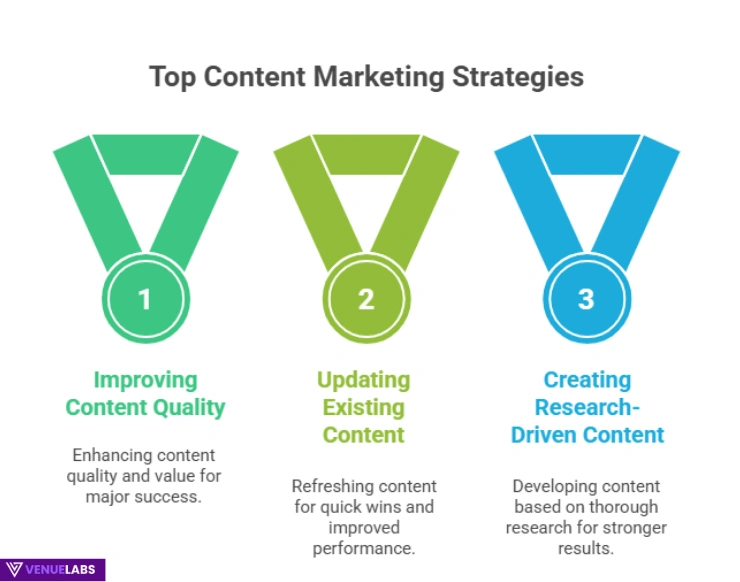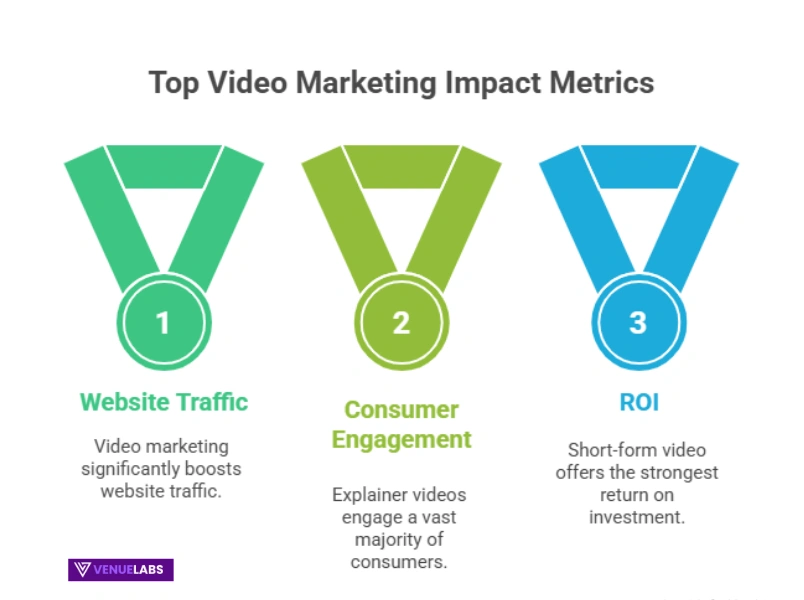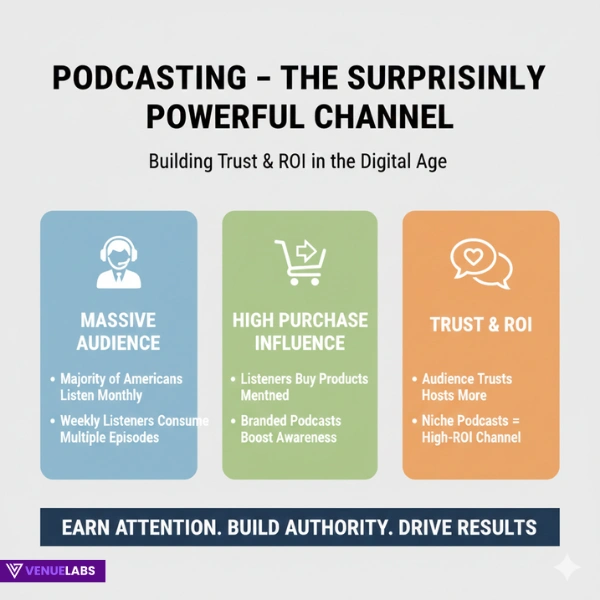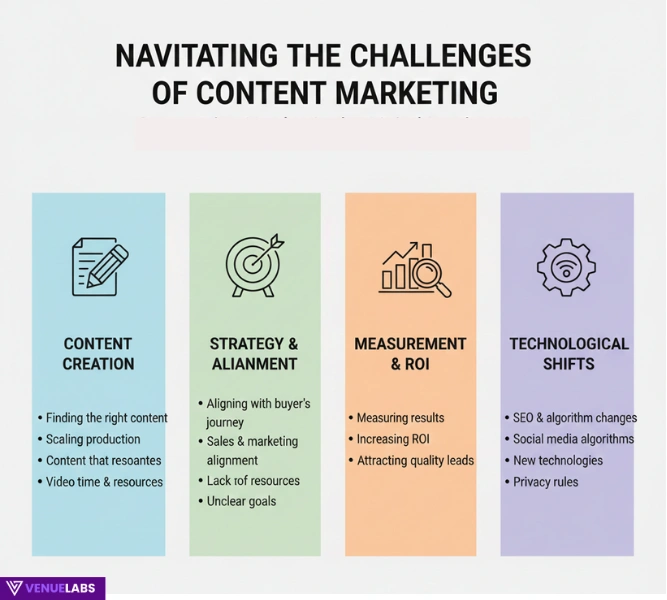Content marketing is not just alive; it’s thriving and evolving at an incredible pace. For anyone looking to understand its power and leverage it for their business, 2025 presents a landscape rich with opportunity and driven by innovation.
We are seeing a clear shift towards quality, strategic audience targeting, and the pervasive integration of Artificial Intelligence (AI).
This article brings together the latest content marketing statistics to show you exactly what is working, what has changed, and where you should focus your efforts to drive leads, boost traffic, and build unwavering trust with your audience.
The Unmistakable Rise of Content Marketing in 2026

More than four out of five marketers today actively use content marketing. This isn’t just a trend; it’s a fundamental pillar of modern business strategy.
A significant majority of companies plan to increase their content marketing budgets, signaling strong confidence in its ability to deliver tangible results.
Key Takeaways on Content Marketing Usage:
- Widespread Adoption: An impressive 90% of organizations actively use content marketing.
- Strategic Priority: Both B2B (73%) and B2C (70%) marketers integrate content marketing into their core strategies.
- Growing Investment: Over half (54.5%) of all businesses plan to spend more on content marketing, with 45% of B2B content marketers expecting bigger budgets.
Also read about: Video Marketing Statistics
AI: The Game-Changer in Content Marketing Efficiency and ROI
If there’s one dominant force shaping content marketing in 2025, it’s Artificial Intelligence. AI is no longer a futuristic concept; it’s a daily tool for a vast number of marketers, significantly impacting efficiency, quality, and return on investment (ROI).
AI Adoption and Impact:
| AI Usage By Task | Share Of Content Marketers |
| Researching content and topic ideas | 58% |
| Rewriting and paraphrasing text | 52% |
| Writing content from scratch | 50% |
| Creating a content marketing strategy | 47% |
| Expanding text – adding more content | 40% |
| Creating content outlines | 39% |
| Optimizing copy for target keywords | 33% |
| Audience research | 30% |
| Improving copy readability | 29% |
| Creating content briefs | 27% |
| Improving copy’s tone of voice | 26% |
| Writing meta tags | 23% |
| Optimizing for a specific audience | 23% |
| Creating visual content (images, video) | 23% |
| Avoiding plagiarism | 20% |
| Grouping and clustering keywords | 16% |
| Content localization and translation | 9% |
- High Adoption: A substantial 67% of small business owners and marketers now use AI for content marketing and SEO. Across the board, 89% of marketers use AI tools.
- Tangible Results: 68% of businesses report a higher content marketing ROI thanks to AI.
- Quality Enhancement: 79% of content marketers say AI has improved their content quality.
- Efficiency Gains: For 56% of top-performing marketers using AI, it leads to more efficient workflows, and 55% see improved content optimization.
- Budget Allocation: 19.2% of marketers spend over 40% of their marketing budget on AI-driven campaigns, showing serious commitment.
Despite the widespread use, it’s crucial to remember that AI is a tool. The human element of strategy, authenticity, and creative oversight remains paramount.
Also read about: Marketing Automation Statistics
Crafting a Winning Content Marketing Strategy in 2025

In 2025, a successful content marketing strategy is a blend of audience understanding, SEO prowess, and continuous improvement. Marketers are prioritizing quality over quantity and actively refining their approaches.
Core Strategy Components:
- Quality First: 83% of marketers believe focusing on quality content, even if it means less frequent posting, is more effective.
- Audience-Centric: 47% of businesses conduct thorough audience research, a critical step in creating relevant content.
- SEO Optimization: 46% perform search engine optimization to ensure their content gets discovered.
- Value Improvement: 44% attribute their success to improving the quality and value of their content.
- Content Freshness: 42% find success by updating existing content, keeping it relevant and competitive.
- Visual Dominance: 40% acknowledge that creating more visual and video content has boosted their marketing efforts.
Tactics Boosting Rankings:
| Tactic | Percentage Of Marketers |
| Creating more content and posting often | 55% |
| Improving the quality of content | 53% |
| Creating more research-driven content | 37% |
| Paying more attention to keyword research | 36% |
| Improving technical SEO on our website | 30% |
| Building topic clusters and content hubs | 24% |
| Link building and guest posting | 21% |
Measuring success is equally important, with 41% of marketers primarily tracking sales as their content marketing ROI. Tools are essential: 42% use content automation, 82% rely on SEO tools, and 88% use web analytics.
Also read about: Latest Digital Marketing Statistics
The Reign of Video and the Enduring Power of Blogs

While new formats emerge, certain content types continue to prove their worth, with video taking center stage and blogs maintaining their foundational role.
Dominant Content Formats:
- Video’s Ascendancy:
- 61% of content marketers have created or used videos.
- 87% of marketers report video has increased traffic to their websites.
- 38% state video content produces the best results.
- 67% of marketers agree video content gained the most importance in the last year.
- Short-form video is the top leveraged media format, with 21% of marketers expecting strong ROI.
- 98% of consumers watch explainer videos, and 87% are convinced to buy after watching a video.
- 83% of consumers want to see more video content from brands.
- Blogs Remain Essential:
- 79% of marketers actively run a blog, recognizing its foundational role.
- Websites with blogs boast 434% more indexed pages, significantly boosting visibility and organic traffic.
- 76% of B2C marketers use blogs to share content, making it the second most popular distribution channel after organic social.
- Interactive Content: This format sees a 52.6% higher engagement rate than static content, with buyers spending an average of 13 minutes on interactive content compared to 8.5 minutes on static.
- Article Length Matters: Longer articles (900-1200 words) attract 21% more traffic and 75% more backlinks than shorter content (300-900 words). This underscores the “quality over quantity” mantra.
Content Distribution: Where Audiences Engage

Creating great content is only half the battle; getting it in front of the right audience is crucial. Social media platforms and organic search remain primary distribution channels.
Distribution Channels:
- Organic Social: This is the most popular content distribution channel for most marketers.
- Social Media Breakdown:
- 90% of marketers use social media to share content.
- Facebook and Instagram are top platforms for organic and paid content.
- LinkedIn (85% for B2B marketers) is the best-performing social media platform for B2B.
- Other popular platforms include X (43%), YouTube (34%), TikTok (22%), and Instagram (21%).
- Organic Search: 51% of content consumption originates from organic searches, highlighting the importance of SEO.
- Podcasts: 64% of Americans listen to podcasts. Podcast listeners are often more educated and have higher incomes, making them prime advertising targets. Notably, 46% of weekly podcast listeners have made a purchase after hearing an ad.
The Tangible Benefits of a Strong Content Marketing Strategy
The investment in content marketing pays off in multiple ways, from increased brand awareness and lead generation to cost savings and customer loyalty.
Key Benefits:
- Boosted Sales & Revenue: 58% of B2B marketers in 2023 reported content marketing helped boost their sales and revenue.
- Lead Generation: Content marketing generates over three times as many leads as outbound marketing and costs 62% less. 76% of marketers report it generates demand/leads.
- Brand Awareness: 87% of marketers increased brand awareness with the help of content marketing.
- Customer Loyalty: 63% of marketers say content marketing helps nurture leads and build loyalty with existing clients.
- Customer Preference: 70% of people prefer to learn about a company through an article rather than an advertisement.
- SEO Advantage: Websites with blogs have 434% more indexed pages, leading to better visibility and organic traffic.
Navigating the Challenges of Content Marketing

Despite its benefits, content marketing comes with its share of challenges. Marketers are constantly battling resource constraints, content production scalability, and the ever-changing digital landscape.
Common Challenges:
- Content Creation:
- 57% of creators find creating the right content for their audience a major challenge.
- Scaling content production is a challenge for 48% of marketers.
- 31% struggle to create content that resonates with their audience.
- Time and resources for video production are significant hurdles (69% and 43% respectively).
- Strategy & Alignment:
- 48% find aligning content with the buyer’s journey challenging.
- 45% struggle with aligning content efforts across sales and marketing teams.
- Lack of resources (58%) and unclear goals are major roadblocks.
- Measurement & ROI:
- 47% of teams find measuring content results difficult.
- 30% struggle with increasing the ROI of their content.
- Attracting quality leads (41%) is a persistent challenge.
- Technological & Algorithm Shifts:
- 64% of B2C marketers are concerned about changes in SEO and search engine algorithms.
- 53% worry about social media algorithm changes.
- Keeping up with new technologies (34%) and privacy rules (19%) are also concerns.
The Future of Content Marketing: What to Expect Beyond 2025
The content marketing landscape will continue to evolve rapidly. Staying ahead means embracing new technologies and focusing on authentic, value-driven content.
- AI Takes Center Stage (Further Integration): With 89% of marketers already using AI, its integration into daily workflows will deepen, from advanced analytics to hyper-personalized content generation.
- Authenticity is Non-Negotiable: As AI aids content creation, the human touch of authentic storytelling, user-generated content (UGC), and genuine brand voice will become even more critical for building trust.
- Video Dominance: Video will continue to be the top content format, with an even greater emphasis on short-form, interactive, and live-streamed experiences. Expect more innovative uses of video, including AI-generated elements.
- Voice Search Optimization: Content strategies will increasingly adapt to natural speech patterns and conversational queries as voice-activated devices become more prevalent.
- User-Generated Content (UGC) Value: UGC will grow in importance for fostering authentic connections, especially as AI-created content becomes more common. Brands will actively encourage and leverage content from their communities.
- Personalization at Scale: AI will enable unprecedented levels of personalization, delivering highly relevant content to individual users at every stage of their buyer journey.
FAQs About Content Marketing Statistics
1. What is the success rate of content marketing?
Content marketing is highly effective, with about 70% of businesses seeing positive ROI. It boosts brand awareness for 87% of marketers and helps 74% generate leads.
2. What are the 4 Ps of content marketing?
The 4 Ps are Product, Price, Place, and Promotion. They help you create valuable content, make it accessible, distribute it in the right channels, and promote it effectively.
3. What are the 3 Cs of content marketing?
The 3 Cs are Company, Customers, and Competitors. They guide you to express your brand’s identity, understand your audience deeply, and stand out from your competitors.
4. How much should a business budget for content marketing in 2025?
Most businesses spend $5,001 to $10,000 per month on content marketing. About 55% dedicate 11–50% of their total marketing budget to content, mainly for blogs and social media.
5. How has AI changed content marketing for small businesses?
AI has made content creation faster and easier. Around 67% of small businesses use AI to generate ideas, draft content, and optimize SEO, improving quality and increasing ROI with less effort.
Also Read:
- Artificial Intelligence Statistics
- Gemini Statistics
- Metaverse Statistics
- Live Streaming Statistics
- Smartphone Usage Statistics
Conclusion
Content marketing in 2025 is smarter, faster, and deeply integrated with AI. With 68% of companies seeing a better ROI through AI and video leading engagement, quality, and strategic thinking matter more than ever.
AI stands out, used by 67% of marketers to improve efficiency and quality. Blogs are still vital (used by 79%), while videos have become indispensable, with 87% noting a traffic boost and 38% calling them the highest-performing format.
Despite this growth, key challenges include a lack of resources (58%), scaling production (48%), and adapting to SEO changes (64%).
If you want results in 2025, data shows that content is still king. Invest smart, publish smarter, and always prioritize genuine value for your audience.
Source: Content Marketing Institute, Hootsuite, Ahrefs
